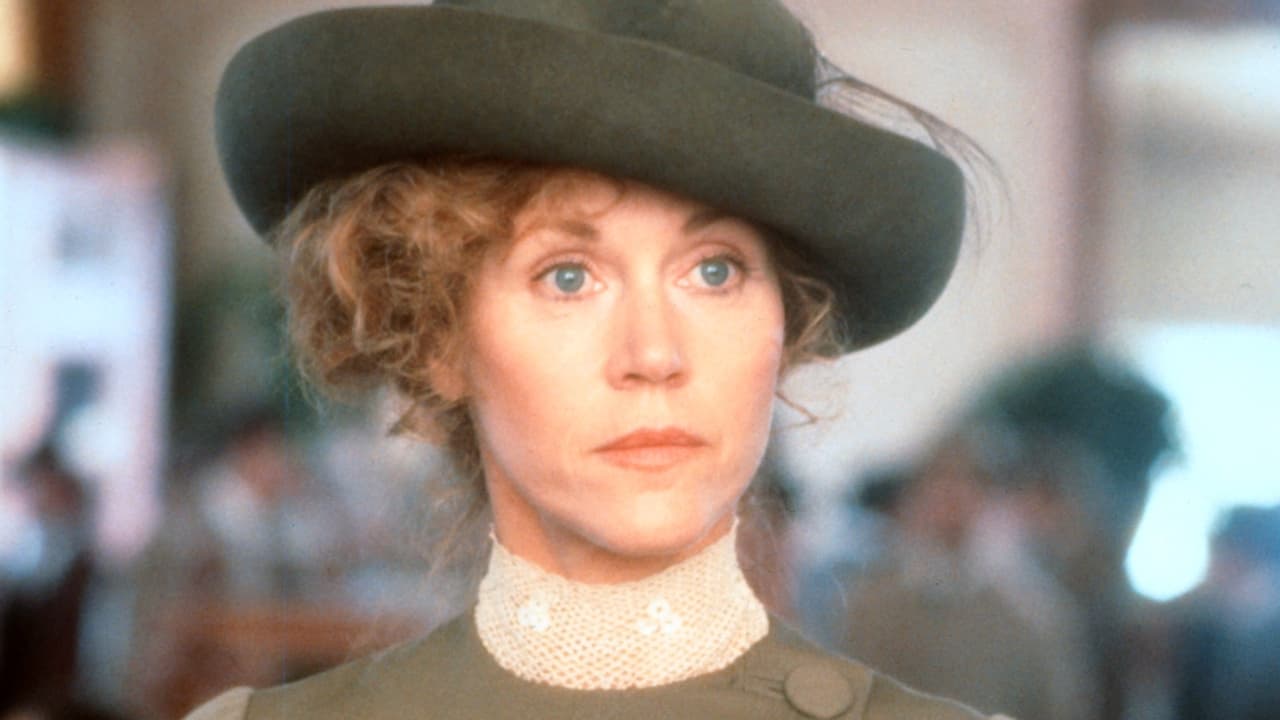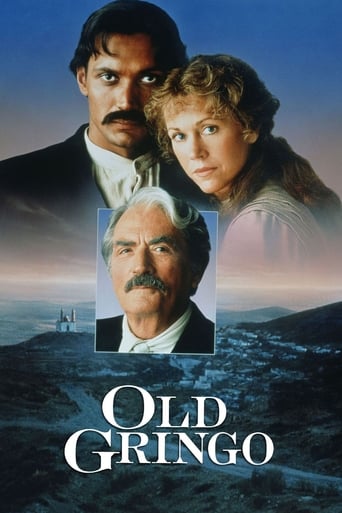

Pretty Good
... View MoreGood concept, poorly executed.
... View MoreIt’s fine. It's literally the definition of a fine movie. You’ve seen it before, you know every beat and outcome before the characters even do. Only question is how much escapism you’re looking for.
... View MoreIt is encouraging that the film ends so strongly.Otherwise, it wouldn't have been a particularly memorable film
... View MoreThere is more soul in this film than in 50 'modern' films.While there is a lot of bad acting, and many other flaws in this movie, there are some GREAT scenes, great dialog, great characters, and great performances. Gregory Peck has some very memorable, outstanding monologues, there are many interesting and complex relationships, and there are no simple resolutions to conflicts.Again- there are many areas of the film that do not work: doesn't matter, ignore them. There is tremendous depth here, and a lot of value to draw from the good parts of this movie. Peck and Smits are great, and even Fonda has some excellent moments.They don't make 'em like this any more, and they don't make actors like Peck.
... View MoreThe idea for this film isn't bad. Back in 1913, a sickly and aging writer (Ambrose Bierce) decided to go to one of the most exciting and dangerous places on the planet--Mexico during the revolution that followed the ouster of the dictator, Porfirio Diaz. While no one knows for sure why he chose to do this, the film's contention that he was suicidal and wanted to "go out with a bang" seems quite reasonable. However, exactly what happened to the man is a total mystery--and to this day no one knows exactly what happened to him. Contact with his simply stopped! This film seems to create a fictionalized idea of what COULD have happened to Bierce (played by Gregory Peck). However, the film did so by creating a fictionalized character of an American teacher (Jane Fonda) who gets tricked into walking into the midst of the fighting--and, naturally, slowly is won over to the side of the soldiers of Pancho Villa--though Villa himself does not appear in the film until the end. In the meantime, Fonda and Peck meet with and spend time with General Aroyo (I have no idea if he was a real person or fictionalized--I assume he was fictionalized since I found nothing on him on the internet). Aroyo is played by Jimmy Smits.So what did I think of this film? Well, on one hand it was a lovely film. The music and cinematography worked together to make a film that was quite pleasing to the senses. The slow pacing and evocative spirit was quite nice. Plus, the three leads are all very good actors and you have to respect their talents. However, despite these factors, the film also had a lot of problems--too many to make it worth seeking out yourself. While it looked good, the film was, after a while, incredibly boring. The plot just seemed to stagnate after a while and seemed to go no where--like they never really worked out the plot completely. And, the most serious problem is that it's hard to like or relate to the characters. Just when you start to connect with them, they behave in ways that make you either hate them or wonder what the @%## motivates them. It's rare to see a movie that has characters that are more ill-defined--and excellent acting can't make up for that.There is one final problem with the film, though most who watch it won't realize it. As a history teacher, I was well acquainted with the Mexican revolution. The various factions, frankly, were all pretty screwed up! While there were things to admire about Pancho Villa and his faction, he was also a blood-thirsty bandit as well as reformer--provided HE was the one doing all the reforms. As for the alternatives, they weren't any better. The ideas of land reform and democracy were wonderful--too bad no one leading any of the factions really did anything to actually improve the lot for the average Mexican! A lot of people died, but essentially the country wasn't much better off when all was said and done. So, in a war when there are no clear "good guys", who do you care about in this film?! As for Miss Fonda and Mr. Peck, they both have been long-time leftists--and very pro-revolution. I strongly suspect that this is why they made this film. I am all in favor of revolution when it means getting rid of evil, but like the Beatles song "Revolution", such movements need to have more to them than just a desire to change things. I wish in hindsight they'd chosen a more productive and life-changing revolution to dramatize--such as the "Velvet Revolution" Czechsolovakia or the fall of the Berlin Wall in 1989. Just my two cents worth.
... View MoreI watched this movie a few times trying to figure out why it left me feeling slightly let down. I couldn't figure it out. All the right elements are there. The dramatic situation is terrific, the overall story line good, the actors top-flight. The technical work is good, but somehow the movie never finds it's story. This is a classic example of a movie that misses the point. Jane Fonda plays an old maid school "marm" who decides to go to Mexico to see the world. She winds up being kidnapped by one Pancho Villa's Generals. Along the way, Ambrose Bierce(played by Gregory Peck), joins them. Mr. Bierce who has a mysterious illness, and is bitterly tired of life, more than anything wants to die a glorious death on the battlefield instead of dying in bed. He can't succeed at this no matter how hard he tries. Along the way Ms. Winslow has dalliances with both men. Gen Arroyo (Smits) and Ambrose Bierce develop a Father/Son kind of thing. With a situation like this, how could it misfire? Here's how.The story is directed as if it were about Jane Fondas relationships with the two men, when in reality the movie is about the terrible internal strife of Gen. Arroyo, and his love/hate for his father, who comes to be personified by Mr. Bierce. What adds interest is the fact that his conflict encapsulates the overall meaning of the revolution, and in an even larger sense, of Mexico. In some ways the whole scope of the history of Mexico can be seen as a working out of the Father/Son relationship. The Father is represented by Spain, the conqueror, and the Son by the people of the land. Spain, as did most European colonial powers, regarded new people and cultures as basically subhuman. The only problem is that they couldn't kill enough of the original inhabitants. They keep wanting their country back. In some ways the political situation in Mexico today reflects this dynamic. Almost all the ruling class families in Latin America trace their ancestry to Spain. The indigenous people still don't govern themselves. Harriet Winslow (Fonda) is only there to provide viewpoint. She influences none of the action and carries none of the meaning. The ideas of this movie were presented later in the Pancho Villa movie with Antonio Banderas in a much better fashion. This is worth a view, though. It's still an enjoyable movie, just one that never found it's point.
... View MoreIn 1913, Harriet Winslow (Jane Fonda) is hired by a Mexican family as a governess, but she then is kidnapped by Gen Tomas Arroyo (Jimmy Smits) and along with other revolutionaries. She also meets Ambrose Bierce (Gregory Peck), who conceals his true identity and who is ready to die on this foreign land. The three of them form a love triangle, Harriet becomes Tomas's lover and her affection towards Bierce is rather like a daughter to a father. But when Tomas invades the house of Miranda, where his birth father, the master, rapes his mother and where his shoots Mr Miranda dead when he is seventeen, he becomes so haunted by his past and obsessed with the old papers. As he befriends Bierce, he also turns into a ruthless commander. In the end, things get tragic- Harriet is determined to fulfill Bierce' dying wish of not being publicised and Tomas has to face his ultimate punishment. Harriet now is the sole survivor who remembers her two beloved men. 'He said I would forget. But how could I not remember?'I really like this film. Jimmy Smits is excellent as the tormented general and Gregory Peck was marvellous as the disillusioned writer and journalist. Jane Fonda is not too bad. The direction is okay, the story is very poignant and twisted. All in all, a nicely done drama.
... View More